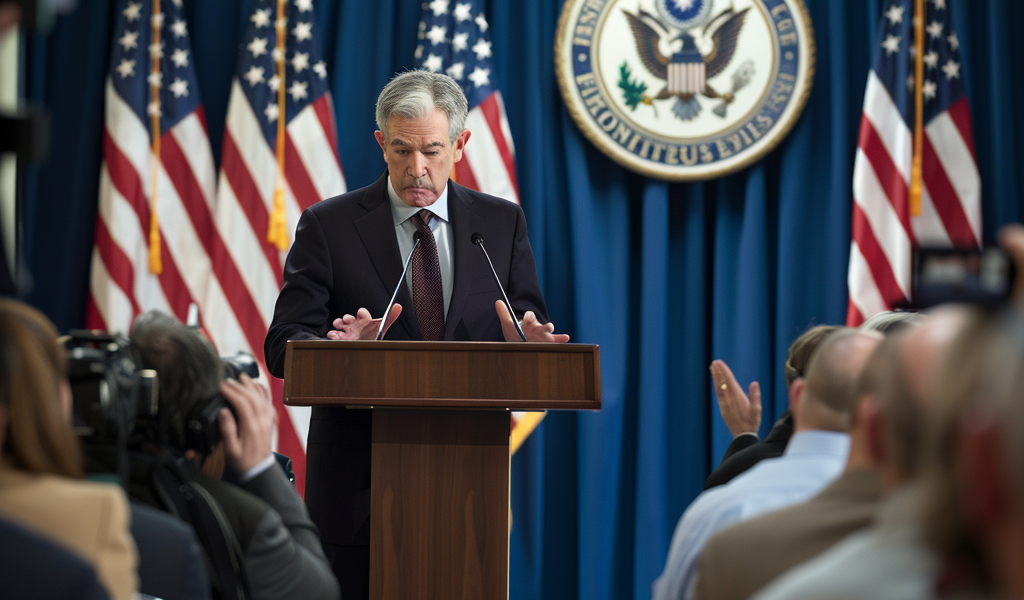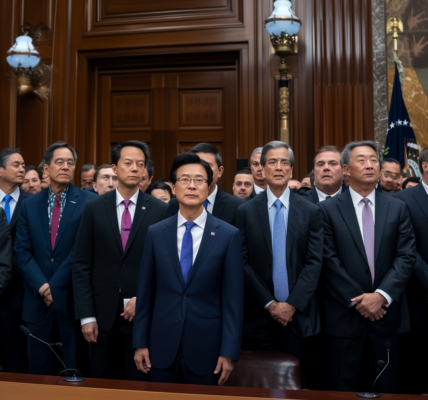The Federal Reserve’s Chairman, Jerome Powell, has addressed speculation about his position in light of Donald Trump’s impending presidency. During a recent press conference, Powell firmly stated that he would not resign if asked by Trump, emphasizing that it is “not permitted under law” for the White House to dismiss him.
This statement comes after the Federal Reserve announced a reduction in borrowing costs, lowering the key lending rate to a range of 4.5% to 4.75%. Analysts had anticipated further cuts in the upcoming months; however, they cautioned that Trump’s proposed tax cuts, immigration policies, and tariffs could exert pressure on inflation and increase government borrowing, potentially complicating future monetary policy decisions.
Concerns regarding these policies have already manifested in the financial markets, with interest rates on U.S. debt experiencing a notable increase this week. At the press conference, Powell remarked that it is premature to assess how the new administration’s agenda might influence the economy or the Federal Reserve’s response. “It’s such an early stage – we don’t know what the policies are, we don’t know when they will be implemented,” he stated. He assured reporters that the election results would not immediately impact the Fed’s policy decisions.
Jerome Powell was appointed as the chairman of the Federal Reserve by Donald Trump in 2017. However, over the years, Powell has become a frequent target of Trump’s criticism. Throughout his first term, Trump took to social media to disparage Fed officials, labeling them as “boneheads” and even exploring options with advisors regarding the possibility of firing Powell.
Recent reports suggest that Trump’s allies have been considering ways to exert more control over the Federal Reserve, which includes the potential to replace Powell before his term concludes. Trump indicated to Bloomberg in the summer that he would allow Powell to serve out his term, which is set to end in 2026, provided he believed Powell was performing well. The president-elect has also expressed that he feels entitled to influence policy decisions.
Despite the political pressures, Powell reiterated his commitment to his role, stating that he would not resign if ordered to do so by Trump. He clarified that any attempts to remove him from his position before the end of his term would be unlawful.
The Federal Reserve has faced significant scrutiny in recent years, particularly as inflation began to rise sharply in 2022. In response, the central bank undertook a series of aggressive interest rate hikes, raising rates from near zero to approximately 5.3% by July, marking the highest levels in over two decades. These increases have had a direct impact on the public, resulting in higher borrowing costs for credit cards, mortgages, and other loans, which has contributed to rising discontent regarding living expenses, particularly in housing.
In September, the Federal Reserve shifted its approach, implementing a substantial rate cut of 0.5 percentage points, signaling a reversal of the previous tightening measures. This decision was made in light of the economic landscape and the need to support growth amidst rising costs.
The ongoing dialogue surrounding interest rates and the Federal Reserve’s policies will remain a critical focus as the new administration takes shape. Observers are keenly watching how Trump’s economic strategies will unfold and their implications for both the domestic economy and global markets.
As the situation develops, the Federal Reserve’s independence and its ability to navigate political pressures will be closely monitored by economists, investors, and policymakers alike. The coming months will likely reveal more about the dynamics between the Federal Reserve and the incoming administration, as well as the broader economic impact of potential legislative changes.





